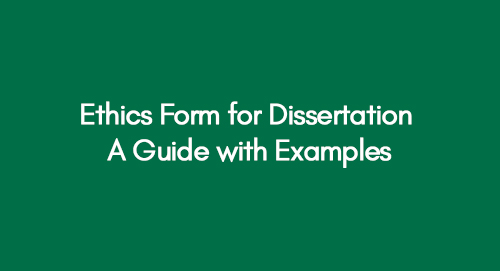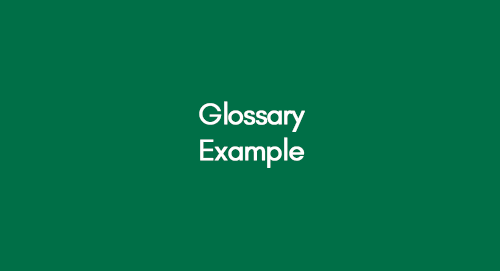A glossary of terms is a list of important words or phrases used in a dissertation and their definitions. It is not mandatory to add in your dissertation, but it helps readers to understand the dissertation's critical and technical content more easily.
Review Our Quality Dissertation Examples
Find Our Primer Dissertation Topics Here
When you create a glossary of terms for a dissertation or thesis, it is important to choose words and phrases that are essential to your dissertation's argument. The definitions should be clear and consistent with how the words or phrases are used in your dissertation. The glossary of terms should be placed at the end of the dissertation.
With this guide, you can write a successful dissertation glossary in time!
Example 1: Effects of Virus on Hospitality and Tourism
Example 2: Impact of Leadership Style on Professional Satisfaction of Nurses: A Case Study
Note: Below is a complete guide with some more examples and tips for you to ace the skill of dissertation writing.
Example Glossary for a Dissertation
Here is an example of a glossary of terms for a dissertation on the topic of "The Impact of Social Media on Political Discourse":
Term | Definition |
Social media | A collective of internet-based applications that enable users to create and share content or to participate in social networking. |
Political discourse | The exchange of ideas and opinions about political issues. |
Political polarization | The tendency of people to hold increasingly extreme views on political issues and to view those who hold opposing views as less credible or even dangerous. |
Echo chamber | A situation in which people are only exposed to information that confirms their existing beliefs. |
Filter bubble | A situation in which people are only exposed to information that is tailored to their interests and which may not be representative of the wider world. |
Confirmation bias | The tendency to interpret new information in a way that confirms our existing beliefs. |
Narrowcasting | The practice of targeting information to a specific audience. |
Algorithms | Sets of instructions that a computer program follows to solve a problem or perform a task. |
Your glossary example will depend on your dissertation topic. However, this example should give you a good starting point for creating your own glossary of terms.
The Significance of a Glossary in Dissertation Writing
A glossary can improve the readability and understanding of a dissertation in several ways. It can help readers to identify the key concepts and ideas in the dissertation topic. This can help readers to better understand the dissertation and to remember the important points. Third, a glossary can help readers to find information on specific topics. This can be helpful for readers who are interested in learning more about a particular topic. If you are writing a dissertation, we encourage you to include a glossary.
Citing Source for Your Glossary
When citing sources for your glossary, you should follow the same guidelines that you would use for any other type of academic writing. This means providing the author's name, the title of the source, the publication date, and the page number(s) where the definition appears.
A Step-by-Step Guide on How to Write an Outline for a Dissertation
For example, if you are citing a definition from a book, you would include the following information in your citation:
If you are citing a definition from an article, you would include the following information in your citation:
Author, A., & Author, B. (Year). Title of article. Journal title, volume number(s), issue number(s), pages.
It is important to note that the specific citation format that you use will depend on the style guide that you are following. For example, the American Psychological Association (APA) style guide and the Modern Language Association (MLA) style guide have different citation formats.
If you are unsure of which style guide to use, you should consult with your instructor or a librarian.
Here are some additional tips for citing sources for your glossary:
- Make sure that you include all of the necessary information in your citations.
- Be consistent with your citation format.
- Use a consistent font and font size for your citations.
- Double-check your citations for accuracy.
By following these tips, you can ensure that your glossary is properly cited and that you are giving credit to the sources that you have used.
Conclusion
Expanding your vocabulary and utilising a well-curated glossary is instrumental in enhancing the quality and effectiveness of your dissertation.
In this article, we have explored the importance of a glossary in academic writing, particularly for dissertations that involve technical or field-specific terminology. By incorporating a comprehensive glossary, you provide your readers with a valuable resource that improves readability, comprehension, and engagement with your research.






















